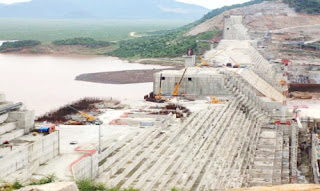UAE sends humanitarian aid cargo to Sudan
A second Emirati aid aircraft arrived in Khartoum as part of the Emirates Red Crescent air bridge under the current UAE humanitarian aid programme, with relief for those affected by the floods in Sudan.. The plane carried large quantities of medicines, medical and food supplies, and shelter materials, and was received at Khartoum Airport by the Advisor at the UAE Embassy in Sudan, Fadel Al Shamsi

Since the end of July, flash floods have devastated areas of Sudan, leaving at least 65 people dead and destroying thousands of homes, according to the country's authorities and the United Nations Office for the Coordination of Humanitarian Affairs. Of the country's 18 provinces, 17 have been seriously affected and more than 185,000 people have been forced to leave their homes. The Sudanese authorities declared the country a natural disaster area and imposed a three-month state of emergency.
As reported by the state news agency, according to Dr. Mohammed Atiq Al Falahi, ERC Secretary-General, the aid has been sent at the directives of His Highness Sheikh Mohamed bin Zayed Al Nahyan, Crown Prince of Abu Dhabi and Deputy Supreme Commander of the UAE Armed Forces.

In early September, ERC, the humanitarian arm of the UAE, drew up an urgent relief plan to meet the needs of the local population for food, health equipment and shelter. They were also working on environmental sanitation by providing pesticides and control equipment for possible pests and thereby preventing the transmission of infectious diseases.
"The ERC delegation is working in coordination with the UAE Embassy in Khartoum to strengthen the country’s humanitarian response towards those affected,'' said Al Falahi.
The UAE Ambassador to Sudan, Hamad Mohammed al Junaibi, noted the leadership Abu Dhabi is taking with Khartoum. "This aid provided by the Emirates Red Crescent to the Sudanese people is part of the Emirati humanitarian response to support those affected and ward off the dangers facing them. This is the second shipment of aid by the ERC after the first one that arrived in Khartoum on Tuesday," Al Junaibi told WAM

Between June and October, Sudan is going through its rainy season and bad weather conditions caused0., east of the country, according to the Sudanese state news agency, SUNA. The floods have made access to public services, such as hospitals and sanitation facilities, difficult, multiplying the health risks. According to the United Nations, nearly six million Sudanese are food insecure, two million more than last year.




Comments
Post a Comment